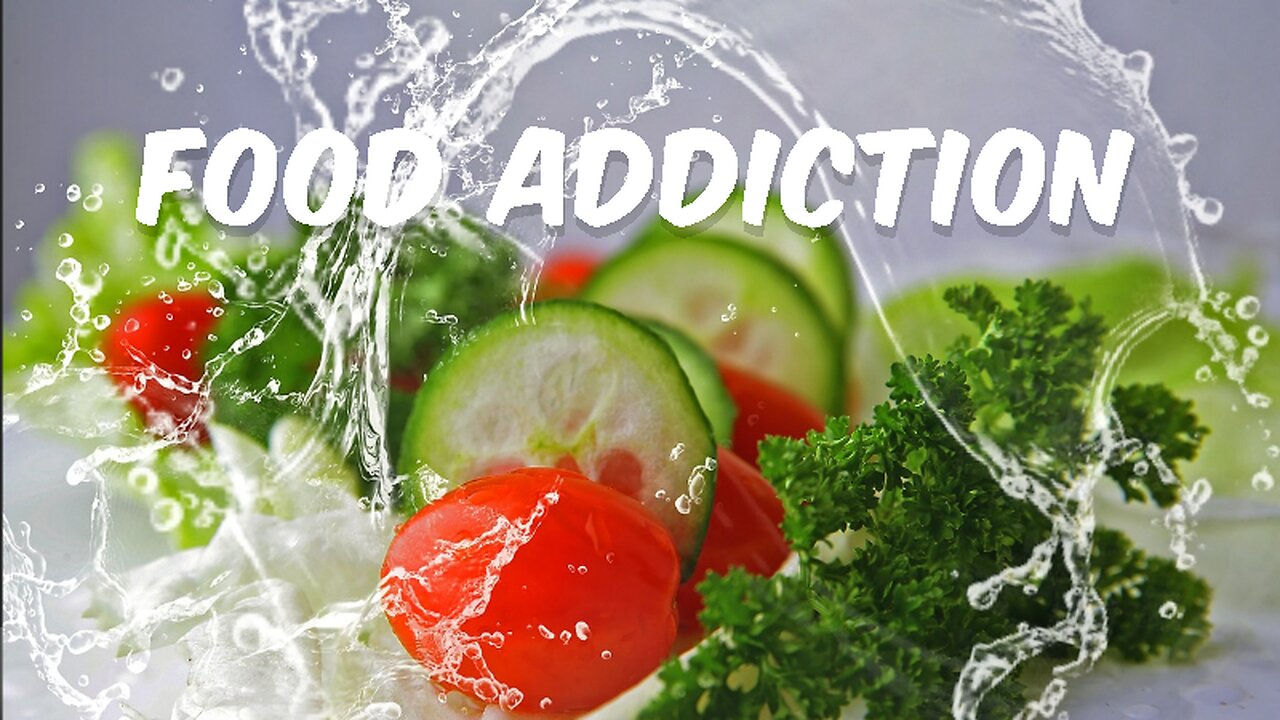Premium Only Content

The craving for food, understanding food addiction
Food addiction, also known as compulsive overeating, is a complex condition characterized by an uncontrollable urge to consume excessive amounts of food, even when not hungry. It's not about simply enjoying food or indulging in occasional treats; it's about a compulsive pattern of eating that negatively impacts your physical and mental well-being.
Signs and Symptoms of Food Addiction
Identifying food addiction can be challenging, as it often mirrors other conditions like anxiety or depression. However, some common signs to watch out for include:
• Loss of control: Feeling unable to stop eating even when you're full.
• Preoccupation with food: Constantly thinking about food, planning meals, or obsessing over recipes.
• Guilt and shame: Experiencing negative emotions after eating, leading to a cycle of guilt and further overeating.
• Isolation and secrecy: Avoiding social gatherings or hiding food consumption from others.
• Health problems: Experiencing weight gain, digestive issues, or other health complications due to excessive eating.
Causes of Food Addiction
The causes of food addiction are complex and multifactorial, often involving a combination of genetic, psychological, and environmental factors. Some contributing factors include:
• Genetics: Research suggests that there may be a genetic predisposition to food addiction, similar to other addictions like alcoholism or substance abuse.
• Brain chemistry: Food addiction is linked to the brain's reward system, which releases dopamine, a neurotransmitter associated with pleasure. Overeating can lead to a dopamine spike, creating a cycle of seeking food for the reward it provides.
• Emotional triggers: Food can be used as a coping mechanism to deal with stress, anxiety, or emotional pain. Emotional eating can become a pattern, leading to overeating even when emotions aren't present.
• Environmental factors: Our modern food environment, filled with highly processed, sugary, and calorie-dense foods, can make it easier to overeat and develop unhealthy eating habits.
Breaking the Cycle of Food Addiction
Overcoming food addiction is a journey that requires self-awareness, support, and a combination of strategies. Here are some steps to consider:
• Seek professional help: Consult a therapist or counselor specializing in food addiction who can provide guidance and support.
• Identify your triggers: Recognize the situations, emotions, or environments that lead to overeating.
• Develop healthy coping mechanisms: Find alternative ways to manage stress, anxiety, or emotional pain besides food.
• Make gradual changes: Start by making small, sustainable changes to your diet, such as swapping processed foods for whole, unprocessed options.
• Practice mindful eating: Pay attention to your hunger cues, eat slowly, and savor each bite.
• Find a support system: Surround yourself with supportive friends, family members, or support groups who understand your struggles.
Remember, breaking free from food addiction is not a quick fix. It's a process that requires patience, self-compassion, and a willingness to make lasting changes. With the right support and strategies, you can reclaim control over your eating habits and rediscover a healthy relationship with food.
-
 1:09:11
1:09:11
Sarah Westall
3 hours agoRead the Signs: Are We Already Operating in a New Financial System? w/ Andy Schectman
9.96K3 -
 LIVE
LIVE
Flyover Conservatives
7 hours agoRicky Schroder Exposes How Hollywood Planted Him as a Child Star | FOC Show
720 watching -
 LIVE
LIVE
JahBlessCreates
1 hour ago🎉 TEKKEN TING, and maybe some music...
74 watching -
 LIVE
LIVE
GritsGG
2 hours agoTop 250 Ranked Grind! Dubulars!🫡
50 watching -
 LIVE
LIVE
StuffCentral
2 hours agoStar Stuffy
29 watching -
 6:02
6:02
Blackstone Griddles
3 hours agoPrime Rib Brisket Burgers on the Blackstone Griddle
3.5K2 -
 LIVE
LIVE
HELMETFIRE
1 hour ago🟢HELMETFIRE PLAYS: Silksong Part 4🟢
25 watching -
 1:14:07
1:14:07
Glenn Greenwald
8 hours agoGlenn Takes Your Questions: Billionaires, Bari Weiss and Journalism | SYSTEM UPDATE #509
63.6K32 -
 LIVE
LIVE
StevieTLIVE
2 hours agoFriday Night HYPE Warzone Games with Stevie
91 watching -
 LIVE
LIVE
SavageJayGatsby
23 hours agoLet's Play: Sea of Thieves | Friend Friday
102 watching